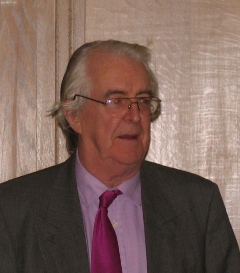A Quote by C. S. Lewis
Besides reasoning about matters of fact, men also make moral judgements.
Related Quotes
"Judge not, that ye be not judge"... is an abdication of moral responsibility: it is a moral blank check one gives to others in exchange for a moral blank check one expects for oneself. There is no escape from the fact that men have to make choices; so long as men have to make choices, there is no escape from moral values; so long as moral values are at stake, no moral neutrality is possible. To abstain from condemning a torturer, is to become an accesory to the torture and murder of his victims. The moral principle to adopt... is: "Judge, and be prepared to be judged."
It is rational to choose the right means to your ends to develop very elegant abstract formal theories of rational choice, and then turn these into what look like moral theories. Philosophers tend to be ravished by the formal beauty of such theories, and they don't pay much attention to the fact that our human limitations make them pretty useless in practice, while the simple point about instrumental reasoning is too shallow to be of much real moral interest.
Our moral reasoning is plagued by two illusions. The first illusion can be called the wag-the-dog illusion: We believe that our own moral judgment (the dog) is driven by our own moral reasoning (the tail). The second illusion can be called the wag-theother-dog's-tail illusion: In a moral argument, we expect the successful rebuttal of an opponent's arguments to change the opponent's mind. Such a belief is like thinking that forcing a dog's tail to wag by moving it with your hand will make the dog happy.
There are also two kinds of truths, those of reasoning and those of fact. Truths of reasoning are necessary and their opposite is impossible, and those of fact are contingent and their opposite is possible. When a truth is necessary its reason can be found by analysis, resolving it into more simple ideas and truths until we reach those which are primitive.
Because those events are so real that they cast their shadow forward and backwards through all time, whenever men think of these matters at all. Even if they are mired in ignorace, they will see...fragments of the Truth, as men imprisoned in a cave see shadows cast by the sun. Likewise, all men derive their moral intuitions from God; how not? There is no other source, just as there is no other way to make a wheel than to make it round.
If an instrument similar to a geiger-counter could be invented that counted moral judgements instead, we would learn to duck as people became increasingly 'moral', since lethal force is usually imminent. So far from moral fervour being an alternative to force, it is frequently the overture, the accompaniment and the memorial to it.
When the doctrine of allegiance to party can utterly up-end a man's moral constitution and make a temporary fool of him besides, what excuse are you going to offer for preaching it, teaching it, extending it, perpetuating it? Shall you say, the best good of the country demands allegiance to party? Shall you also say it demands that a man kick his truth and his conscience into the gutter, and become a mouthing lunatic, besides?

































